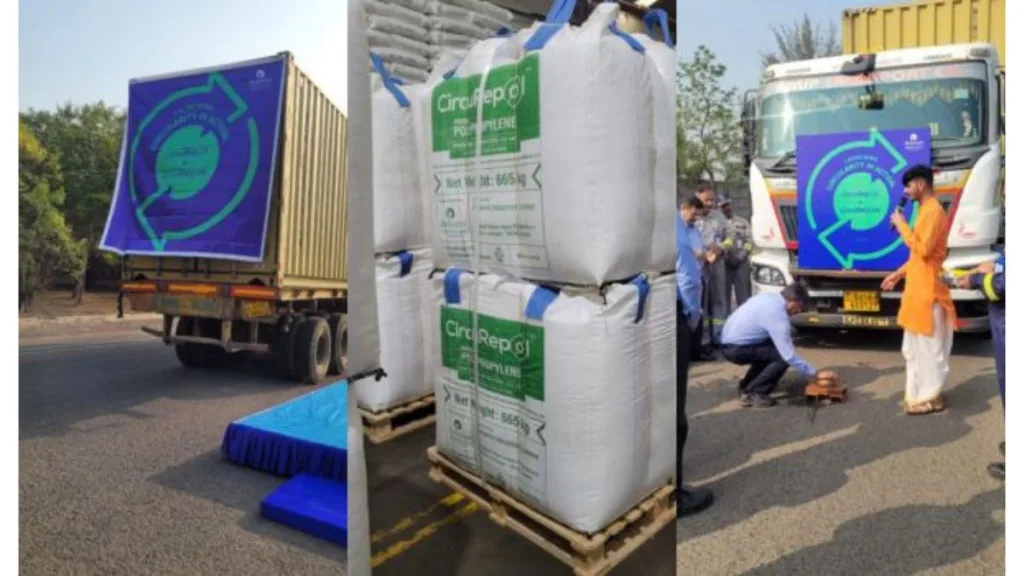Jamnagar: Reliance Industries Limited (RIL), renowned for operating the world’s largest integrated refining and petrochemical complex, has achieved a significant milestone as the first Indian company to convert plastic waste-based pyrolysis oil into International Sustainability & Carbon Certification (ISCC)-Plus certified Circular Polymers. This breakthrough underscores RIL’s unwavering dedication to curbing plastic waste and promoting the Circular Economy in India.
The initial shipment of RIL’s groundbreaking ISCC-Plus certified Circular Polymers, known as CircuRepol™ (Polypropylene) and CircuRelene™ (Polyethylene), marks a pivotal moment in India’s sustainable practices.
RIL stands at the forefront of innovation by employing advanced technology to transform plastic waste into specialized Circular Polymers, thereby contributing positively to environmental conservation. The company’s commitment to sustainability is evident through inventive approaches such as chemical recycling, which plays a vital role in establishing a Circular Economy. RIL is steadfast in its pursuit of intelligent solutions to minimize plastic waste, encouraging others to participate in the collective journey towards a greener future.
CircuRepol™ and CircuRelene™ exemplify RIL’s dedication to leading Circular Economy initiatives. The Jamnagar refinery, under RIL’s purview, has earned the distinction of being the first refinery to obtain the crucial ISCC-Plus certification, validating its ability to produce Circular Polymers through chemical recycling.
The ISCC-Plus certification ensures that stringent traceability and compliance standards are adhered to in the production of Circular Polymers. RIL has developed cutting-edge technology capable of converting diverse plastic waste streams, including single-use and multi-layered plastics, into pyrolysis oil. Collaborating with trusted partners, the company aims to scale up production and convert the output into Circular Polymers.
Chemical recycling offers numerous advantages, notably the transformation of plastic waste into high-quality materials suitable for new plastic production. These materials find application in packaging, including items that come into contact with food, exemplifying RIL’s commitment to sustainable practices and responsible resource management.

